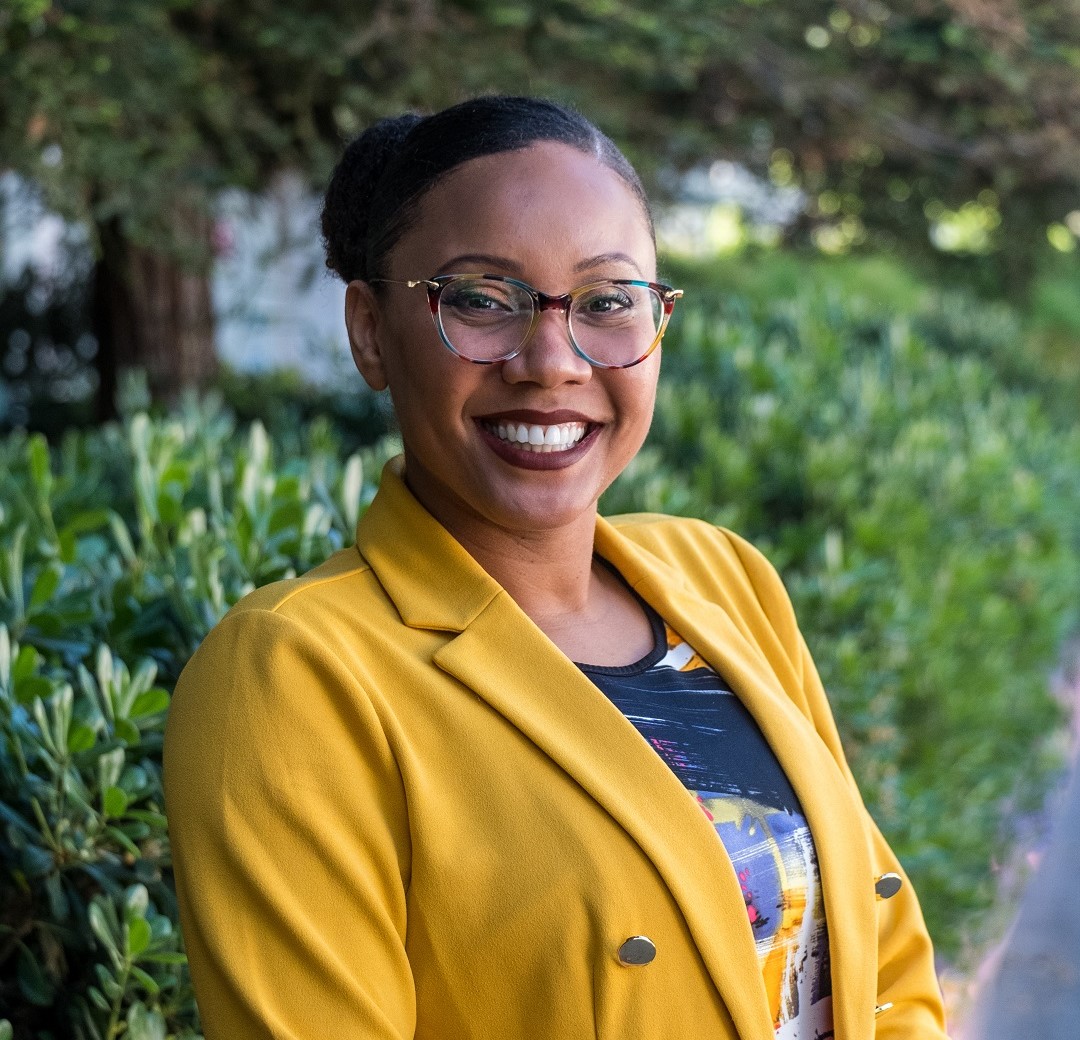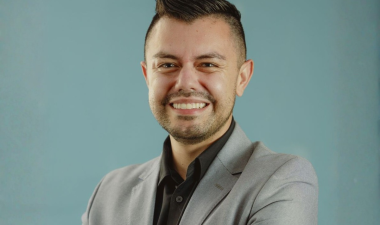
Ashley Borjon claims she was tricked into enrolling in college.
The married mother of three boys was returning to the Modesto region from Missouri after her husband’s Air Force duty ended, and a friend asked her to enroll in classes with her at Modesto Junior College.
Borjon enrolled in “random classes” and her friend, who wanted to return to school to become a nurse, dropped out after two weeks.
Borjon remained, and her educational pursuit is no lark.
She breezed through MJC in two years with associate degrees in sociology and child development, enrolled in Stan State’s honors program in fall 2021, and is a McNair Scholar with plans to pursue sociology graduate work.
Borjon’s real trick is her ability to juggle schoolwork with a job in human resources at the Stanislaus County Office of Education, and caring for her husband, Rudy, and sons, Hayden, Dillan and Jordan, now 9, 7 and 5.
“My husband was totally fine with it, because I had time to go to school,” Borjon said. “I had homeschooled my kids, but I put my kids in school for the first time. I wasn’t working when I started. I had time. The pandemic hit and I was sewing 12 hours a day making masks, and everyone was like, ‘aren’t you super busy?’ While you’re in school it’s chaotic for other people to see, but it’s not chaotic for me, because I've got it down. I'm not very meticulous when it comes to a schedule, but I am good about getting things done at the last minute. I’m a professional procrastinator.”
She’s also an exemplary student who wowed her teachers from the time she started college.
“My first English class at MJC, the professor asked us to write about something that set us on a different path,” Borjon said. “A lot of people write about a teacher they had in high school that changed their trajectory.”
Borjon’s defining moment came when she was a young single woman living and working in Turlock and a group of friends went out after work. Left standing alone at the bar while her co-worker went to the men’s room, Borjon said she was called racial epithets and punched in the face by a man who told her she didn’t belong, because Turlock was a white town.
“That was my moment,” she said. “That’s what I wrote about. That was the moment where I knew I could try anything to try to fit in, but there are some people that don’t look past skin color, so it doesn’t matter.
“It rounded everything out for me.”
Studying sociology, which involved trying to understand what makes people tick, was a fit, as were writing and social justice.
“I know there are career opportunities for all of those things within the sociology field,” Borjon said.
She gained more insight taking a research methods class. She looked at “the amount of emotional baggage we’re carrying from having to deal with all of these racial issues on a regular basis. … It's emotional battle fatigue, racial battle fatigue is what I called it.”
It happens everywhere, whether at her mother’s place of work, where Borjon is helping her fight a racial issue, or when she wears her natural curly hair down and people want to touch it, she said, both at work and in public.
“It’s a microaggression,” Borjon said. “You don’t understand it makes me uncomfortable for you to touch my hair.”
Some people of color are accustomed to such treatment and tell her to let it go.
Borjon can’t, but she’s not focusing on it as she moves forward in her sociology studies.
“I don’t know if I want to be in law or education,” she said. “I may want to be more involved in the policy side of education and getting more equity for children. A lot of people think we need equality in education. What we need is more equity. Some of these kids are starting from a different point. They need a little more help than others, a different type of assistance.”
She wants to explore the field more deeply, both in class and as a McNair Scholar, a designation that means a lot to her.
As a third grader, she attended Edison-McNair Charter School in East Palo Alto and knows that Ronald McNair, a Black physicist and astronaut, died with six other crew members when the Space Shuttle Challenger exploded on takeoff in 1986.
Her dad works for NASA in Ohio and is a good friend of Guion Bluford, the first African American in space, having been on Challenger in 1983. Borjon enjoyed many Thanksgiving meals with Bluford.
That connection makes the McNair Scholars Program especially meaningful to Borjon, who also appreciates the support it provides and the potential to define her career path.
“They asked what I planned on doing, what my goals were,” Borjon said. “My honest answer was I wanted to shake (things) up. I want to be part of the change for other people. I don’t know what that change is going to be or what job it’s going to be in. I know when I'm determined to do something, I'm one of those people that if somebody tells me I can’t do it, I'm going to do it anyways, just to prove you wrong.”


